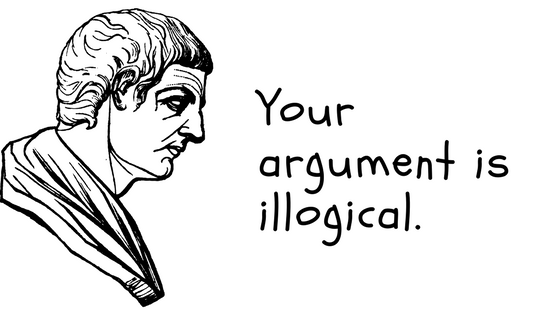Avoid These 5 Logical Fallacies to Strengthen Your Arguments
Written on
Understanding Logical Fallacies
Logical fallacies are frequent mistakes in reasoning that can weaken your arguments and mislead others. These errors, often lacking supporting evidence, can easily be identified. Recognizing and avoiding such fallacies can enhance your argumentative skills and help you challenge the flawed reasoning of others.

Exploring Common Fallacies
Let’s delve into five prevalent logical fallacies you should be aware of:
Galileo Gambit
This fallacy suggests that if your ideas provoke ridicule from established norms, then you must be correct.
Example: "They mocked Galileo, and he was right. They mock me, so I must be right."
Ad Hominem
This occurs when an argument targets a person's character instead of addressing their reasoning. It's a widespread fallacy that undermines constructive debate.
Example: "Why should anyone trust you? You're just a warmongering fool."
Sentimental Appeal
This fallacy involves using emotional manipulation to divert attention from factual arguments.
Example:
Son: "Mom, can I have this adorable Persian cat?"
Mom: "No."
Son: "But look how cute it is!"
Scare Tactics
Here, the arguer attempts to instill fear to persuade others to agree with them, often exaggerating potential dangers.
Example: "If Trump wins, he'll plunge the nation into chaos."
Moral Equivalence
This fallacy asserts that two morally distinct situations are equivalent, commonly seen in political debates.
Example: "Hamlet is just as bad as Claudius because they both committed murder."
To quote Stewart Stafford, “Applying logic to potentially illogical behavior is like building a house on shifting foundations. The structure will inevitably collapse.”
These logical fallacies can undermine your arguments, making you appear uninformed or untrustworthy. It's crucial to reassess your reasoning, rectify your misconceptions, and embrace truth and rationality.
Five Fallacies | Idea Channel | PBS Digital Studios
This video discusses five common logical fallacies, providing insights into how they manifest in everyday arguments.
22 Common Fallacies
In this video, you will learn about 22 frequent logical fallacies, complete with examples to help you recognize them in discussions.
Reflect on these concepts to enhance your argumentative skills and engage in more rational discussions.